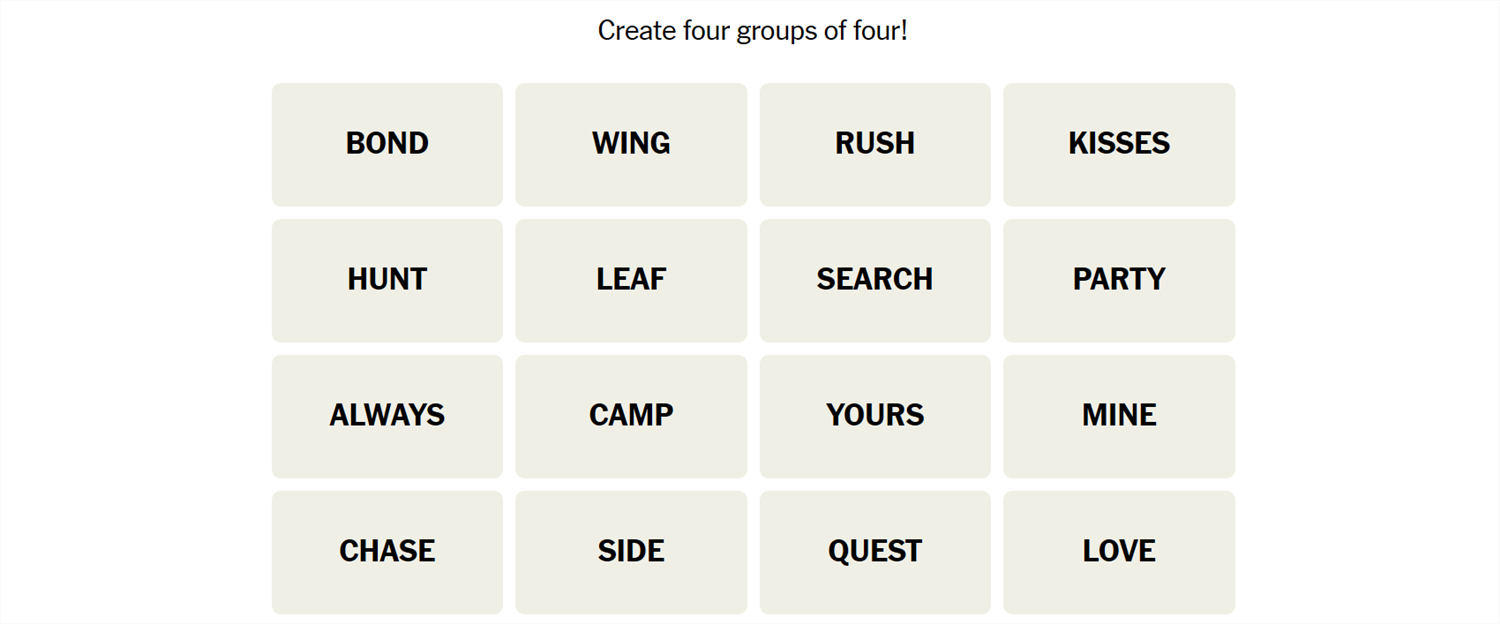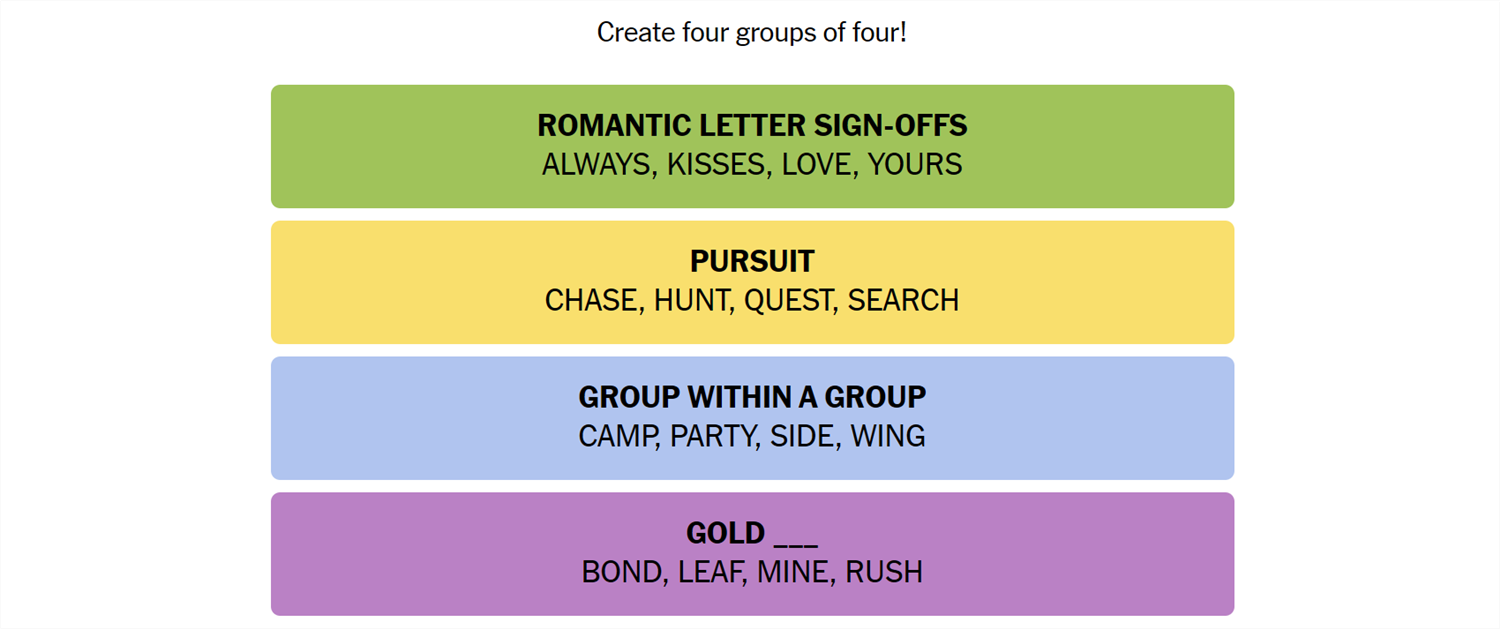Connections is a game from the New York Times that challenges you to find the association between words. It sounds easy, but it isn’t—Connections categories can be almost anything, and they’re usually quite specific. If you need a hand getting the answers, we’ve got you covered.
What Is Connections?
Connections is a game from the New York Times. The objective is simple: sort 16 words into groups of 4. Each group of words will be connected by some common idea or theme. That common element could be anything. We have seen everything from games that rely on the number of letters in the words to categories that require you to spot an extra letter at the end of the word. Sometimes they’re references to economics, other times they reference fairy tales. There is no telling what sort of association there will be between words.
Once you’re confident you understand the connection, select 4 words, then hit “Submit.” You have only four attempts in total, so don’t be too guess-happy.
Hints for Today’s Connections Groups
Here are a few hints for the 382nd Connections game to get you started:
- Yellow: To follow unrelentingly.
- Green: Ways to close a letter with a loved one.
- Blue: A smaller part of a larger whole.
- Purple:
If you still need help, the actual group names are:
- Yellow: Pursuit
- Green: Romantic Letter Sign-Offs
- Blue: Group Within a Group
- Purple: Gold _____
Today’s NYT Connections Answers
Pursuit (Yellow):
Chase, Hunt, Quest, Search
Romantic Letter Sign-Offs (Green):
Always, Kisses, Love, Yours
Group Within a Group (Blue):
Camp, Party, Side, Wing
Gold____ (Purple):
Bond, Leaf, Mine, Rush
How Did We Solve This Connections Game?
June 27th came super easily to me, though it was more luck than anything.
The first group I spotted was the Green group, “Romantic Letter Sign-Offs.” I first noticed always and yours, which can be part of platonic sign-offs, and searching for other words that fit the idea of letters (or emails, really), I realized that we’re probably talking about romantic sign-offs. That is unless you’re extremely close with the people in your professional life.
Chase, hunt, and search are all pretty close to synonymous, so I went with those next. Quest sorta fits, though it isn’t used frequently as a verb. Those 4 belonged to the Yellow group, “Pursuit.”
Next, I looked at party. My brain decided to start with a party of bandits (thanks, no doubt, due Mount and Blade II: Bannerlord) rather than a celebration. From there, side, wing, and camp, all as in subgroups, just came together. Blue was “Group Within a Group.”
That left bond, leaf, mine, and rush in the Purple group. Once again, saying them out loud helped—as soon as I did so, I realized that all of them can be preceded by the word “Gold” to add a more specific meaning. The group was just “Gold ____.”
How Do You Guess Connections Groups?
There is no quick, reliable way to approach Connections like there is with Wordle, since Connections isn’t algorithmic. However, there are a few things to keep in mind that can help.
- Look for similar parts of speech. Are some words verbs and others nouns? Are some adjectives? Try mentally grouping them based on those categories and see if any other patterns jump out at you.
- Are the words synonyms? Sometimes categories will just be synonyms for a phrase, or very close to synonyms. Don’t rely too closely on this, though. Occasionally, Connections will deliberately throw in words that are sometimes synonyms to mislead you.
- Try saying the words. Sometimes, saying the words helps. One puzzle we saw included the words go, rate, faster, clip, pace, speed, move, commute, and hurry—all of which are obviously related to the idea of motion. However, when you say them, it becomes a little more obvious that only four (go, move, hurry, faster) are things you’d actually say to prompt someone to get moving.
- Expect the red herring. Connections usually has words that could be plausibly, yet incorrectly, grouped together. Take the words Bud, Corona, and Light, as an example. You might instinctively see those three words together and assume they’re lumped together in a category related to beer—but they weren’t.
- Look for distinct words. If a word on your board doesn’t have multiple meanings or can really only be used in one context, try using that word as the basis for a category.
- Shuffle the board. Sometimes, moving words around will help you look at them in new ways.
If you didn’t solve this one, don’t feel too bad—there’s always tomorrow! And those words may align with a topic you’re interested in, giving you a leg up on the competition.






